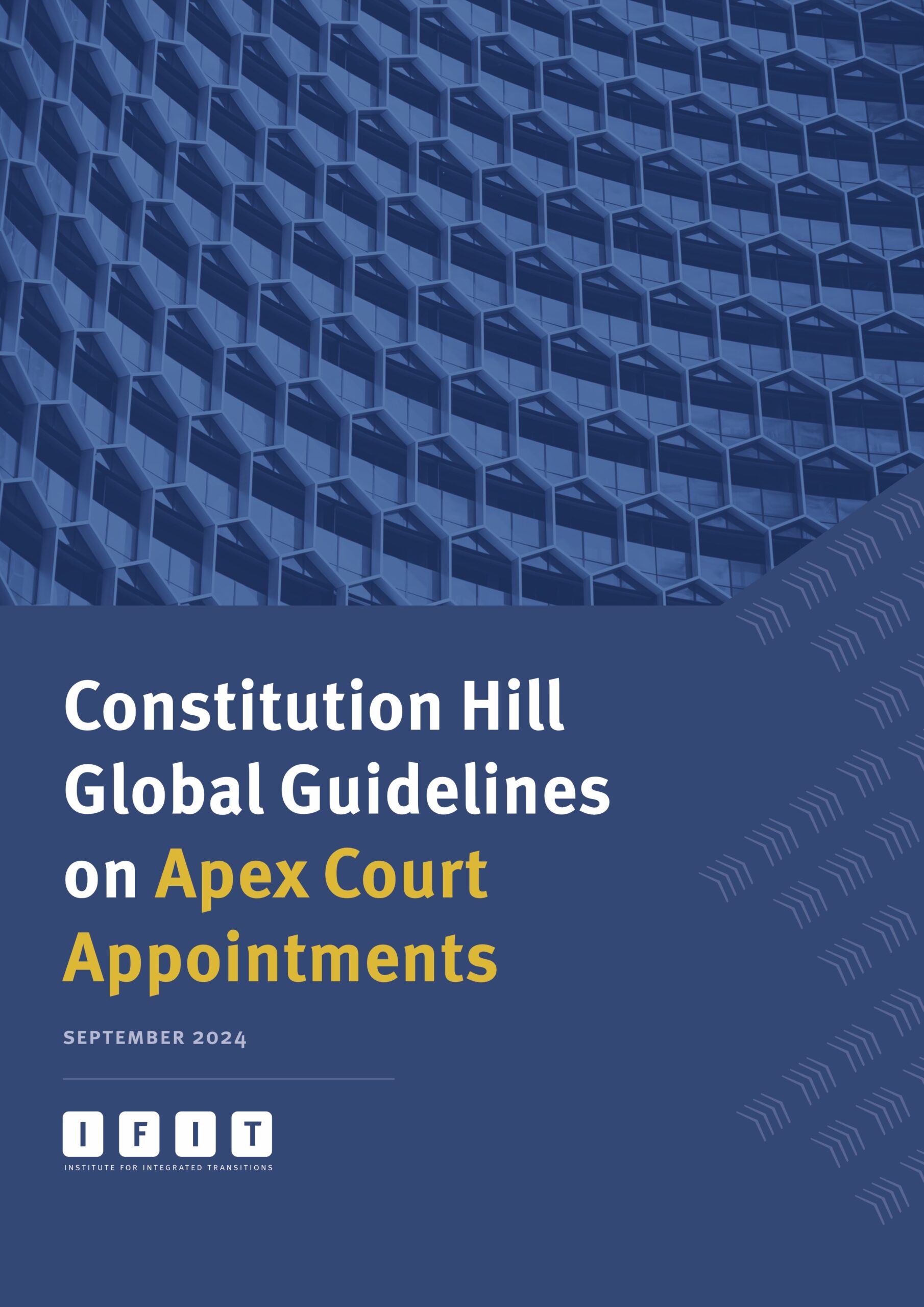
IFIT / WELCOME TO The Initiative on Apex Court Appointments
The Initiative on Apex Court Appointments
The Initiative on Apex Court Appointments is a unique rule of law project to fill the current global gap in guiding principles on the selection and appointment of constitutional and apex court judges.
Scroll down for more
There are many important national, regional and international principles and guidelines on the selection and appointment of judges. What has been missing is a set of baseline principles tailored to the unique role and characteristics of Apex Courts and customisable to the unique conditions of diverse country and/or regional contexts.
To fill the gap, IFIT – in partnership with Constitutional Transitions and a High-Level Advisory Panel composed of distinguished judges and jurists from a wide spectrum of legal systems – launched the Initiative on Apex Court Appointments in 2021. Yale Law School, King & Spalding LLP, and W Legal Limited provided pro bono support at key stages.
Starting in July 2023, a first draft of the proposed Guidelines was the centrepiece of an expert consultation and feedback process with 100+ leading global and regional legal and judicial institutions, associations and networks. In early 2024, an updated version of the Guidelines passed through a second phase of global consultation and feedback, culminating in a high-level judicial and legal summit held in Johannesburg, South Africa in May 2024.
The result is the Constitution Hill Global Guidelines on Apex Court Appointments (available in English, French, Spanish, Portuguese and Arabic).
The Guidelines are entirely original but draw from a range of key sources including: (i) a detailed IFIT study of existing global and regional principles on judicial appointments and judicial independence; (ii) a comprehensive survey of national standards; (iii) in-depth interviews conducted with the initiative’s High-Level Panel members and with additional judges and jurists globally; and (iv) early work in the Southern African region from whence the project originated with the support of IFIT’s Zimbabwe Resource Group.
FAQ
For purposes of the Guidelines, an Apex Court is defined as the highest court on constitutional matters in a given country. It may be a supreme court, a constitutional court, or something else – depending on the legal system.
Across very diverse jurisdictions, Apex Courts have a combination of distinguishing features that merit a tailored approach for judicial appointments. For example: 1) they constitute the highest court on all constitutional matters in a particular country, 2) they are multi-member courts that adjudicate in plenary or in panels, and 3) they deal regularly with politically charged cases that have foundational consequences for democracy, human rights and the rule of law in the country. A number of national jurisdictions reflect some of these features in their appointment criteria and procedures for Apex Court appointments.
Existing principles, although valuable, have two limitations: 1) they tend to focus overwhelmingly on rules of procedural fairness and questions of individual merit, largely omitting criteria of character; and 2) they are generic in application and thus do not take account of the special considerations that pertain to the appointment of judges to Apex Courts.
The global gap this initiative seeks to fill was first identified through early work conducted in 2021 by IFIT with expert input from a group of retired and active Apex Court judges from the southern African region, as well as several distinguished lawyers from IFIT’s brain trust in Zimbabwe. The initiative’s High-Level Advisory Panel, formed thereafter, includes several distinguished judges and jurists from the region. The first public presentation of the draft global guidelines took place at a regional convening in Angola in the fall of 2023. IFIT then organised and hosted a seminal high-level regional roundtable at Constitution Hill in Johannesburg, South Africa in May 2024.
IFIT experts worked for three years in partnership with Constitutional Transitions and a High-Level Advisory Panel composed of distinguished judges and jurists from a wide spectrum of legal systems. Yale Law School, King & Spalding LLP, and W Legal Limited provided pro bono support at key stages. The Effective Institutions Project provided financial support, as did IFIT’s core funding partners. More than 100 leading global and regional legal and judicial institutions, associations and networks provided vital feedback during the worldwide consultation process.
To learn more or offer your support for the Initiative on Apex Court Appointments, please contact Cristina Torelló at [email protected].




















